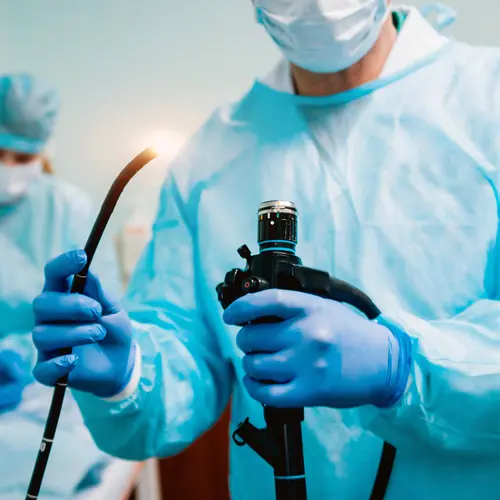“How hot would you like that?” the server at my favorite Thai restaurant asks. My taste buds whisper: fiery. My belly moans, What about me?
I love a hot, spicy meal. But an hour later, like many people, I can end up wishing I’d never lifted my fork. The culprit? Heartburn and acid reflux. Officially known as gastroesophageal reflux disease, or GERD, acid reflux occurs when food and stomach acids escape up into the esophagus through the valve at the top of the stomach. That causes the burning sensation that can sometimes rise up into the throat, known as heartburn.
Surveys of heartburn sufferers suggest spicy foods are among of the worst offenders. Whether spicy foods deserve their reputation is controversial, I’ve discovered. Many different foods can trigger heartburn.But luckily, you don’t have to say no to Chinese kung pao chicken, Mexican salsa, or fiery Thai noodle dishes. A few practical tips can help you put out the fire of heartburn before it starts.
Preventing Heartburn: Recognize Your Own Heartburn Triggers
Researchers have compiled a long list of foods that seem to trigger heartburn. These include alcohol, citrus fruits and juices, carbonated beverages, coffee and caffeine, chocolate, tomato sauce, fatty foods, mint, and, of course, spicy foods.
“But no single food stands out,” says Anish Sheth, MD, assistant professor of medicine at Yale University and co-author of What’s Your Poo Telling You? “For some people, the same food can cause problems after one meal but not after others.”
Dispelling Myths About Heartburn Triggers
In theory, foods most likely to cause acid reflux and symptoms of heartburn are those that cause the valve at the top of the stomach to relax. Mint, alcohol, and caffeinated coffee, among other foods, are believed to have that effect.
Yet when gastroenterologist Lauren B. Gerson, MD, an associate professor of medicine at Stanford University, and colleagues looked at trials designed to test the effects of these and other particular foods on heartburn symptoms, they found very little evidence to support the associations.
Even spicy foods may not deserve their reputation as being the worst culprits. Sure they taste hot, but that doesn’t mean they cause acid reflux. They may simply irritate the stomach.
“Still,” Gerson says, “it’s commonsense that if a particular food happens to cause you problems, the best advice is to avoid it.”
Since even heartburn sufferers can be misled by popular misconceptions, experts recommend keeping a food diary for several weeks.
“As soon as heartburn strikes, jot down what and how much you ate,” suggests dietitian Elaine Magee, author of Tell Me What to Eat If I Have Acid Reflux. “Also keep track of foods you thought might cause trouble but don’t. That way you won’t have to eliminate foods unnecessarily.”
Heartburn Prevention: Eat Smaller Servings
Not ready to let heartburn force you to say no to salsa caliente? The next best strategy, then, is to limit the amount you eat.
“When you eat a large meal, pressure on the valve increases. So there’s a predisposition to reflux after a big meal,” Sheth says. The problem is worse if the meal causes you to belch, since that requires the valve at the top of the stomach to open. When it does, it allows trapped air to escape, sometimes bringing up acidic stomach contents along with it. For some people, drinking carbonated beverages along with a meal can exacerbate the problem.
Fatty meals can also increase the risk of reflux. “Eating fatty foods delays stomach emptying, since fat takes longer to digest,” explains Gerson. “The longer food remains in the stomach, the more chance there is of reflux.” To help prevent heartburn and GERD, choose roasted, grilled, or baked foods over fried foods, and go easy on butter.
Heartburn Prevention: Eat Early and Often
Some heartburn sufferers find relief by eating smaller meals distributed more frequently throughout the day -- a light breakfast, a midmorning snack, a light lunch followed by a midafternoon snack, for example. Scheduling dinner early can also help.
About 50% of heartburn sufferers have nighttime reflux, according to Gerson. This form can be especially unpleasant because when you’re lying down, more stomach contents can flow up into the esophagus. Nighttime reflux can also disturb sleep. Gerson’s tip? Eat dinner at least three hours before bedtime. That’s enough time to allow the stomach to empty before you hit the pillow.
Heartburn Prevention: Rely on Gravity
Another way to relieve nighttime reflux requires nothing more than two wood blocks. Elevating the head of your bed a few inches enlists gravity to help keep stomach contents from rising, Sheth says. You can also use a wedge-shaped pillow to elevate your upper body at night. For daytime heartburn, the best way to employ gravity is to remain upright after a meal. Walking after a big meal can also help. But don’t overdo it. Some research links vigorous exercise to an increase in reflux risk.
Heartburn Prevention: Chew Gum
Saliva helps move food down through the esophagus and can ease the symptoms of heartburn. To increase salivation, try chewing gum after a meal or an attack of heartburn. Avoid mint-flavored gums, however, since these may relax the valve at the top of the stomach.
Heartburn Prevention: Get Healthy
The most reliable ways to avoid GERD may be the hardest to accomplish: quit smoking if you smoke and lose weight if you’re overweight. Studies show that smokers are more prone to heartburn than nonsmokers. And the longer people smoke, the more likely they are to suffer acid reflux.
Being overweight can add to the pressure on the valve between the stomach and the esophagus. One study showed that every increase of 5 on the body mass index increases the risk of GERD by 1.2%. Eating smaller portions and walking after a meal can help you shed pounds at the same time they help prevent heartburn.

